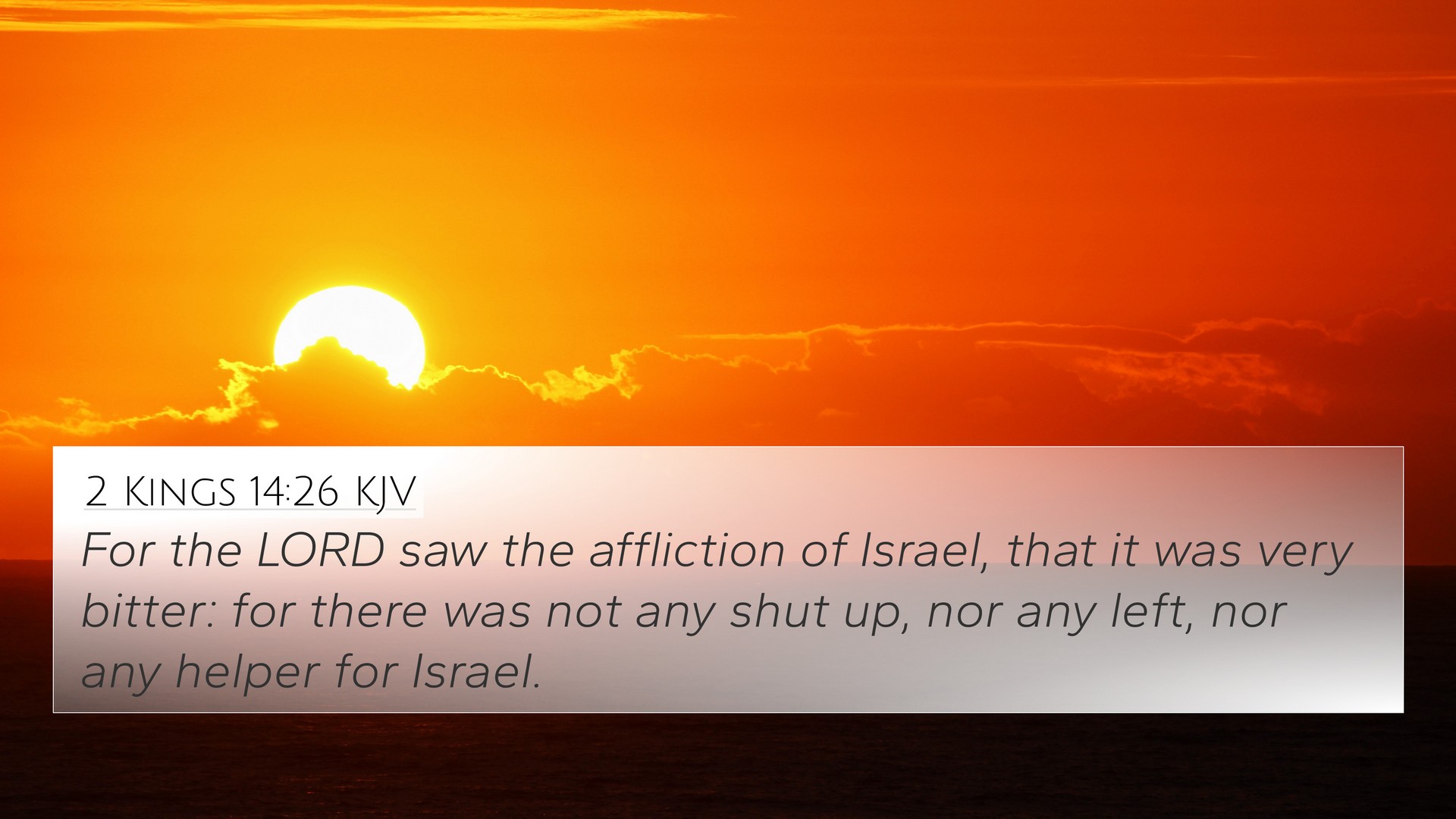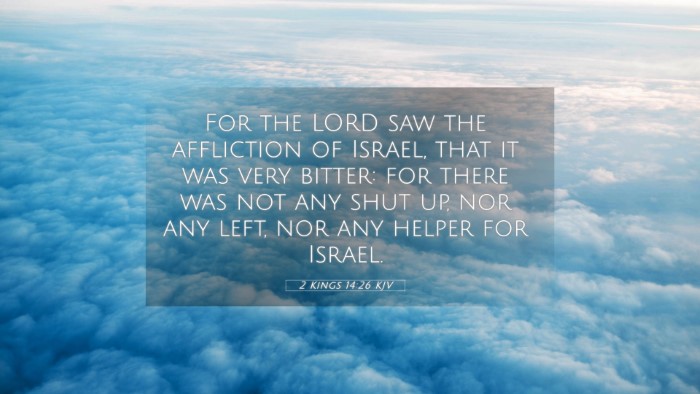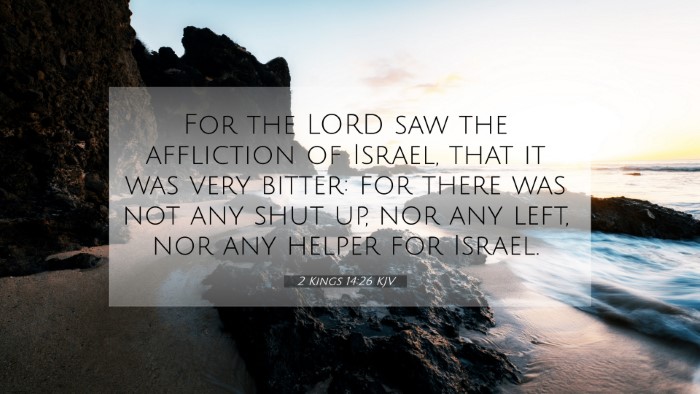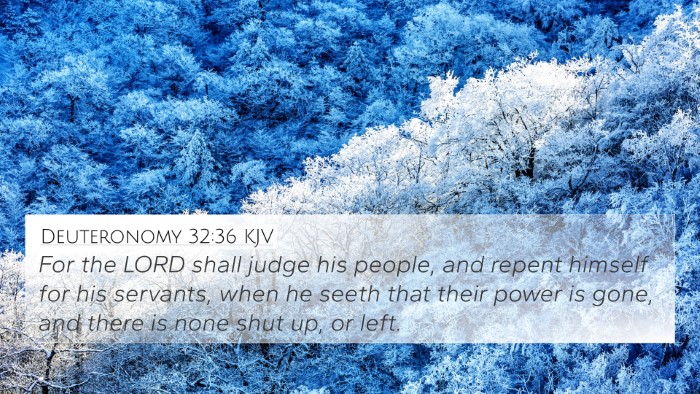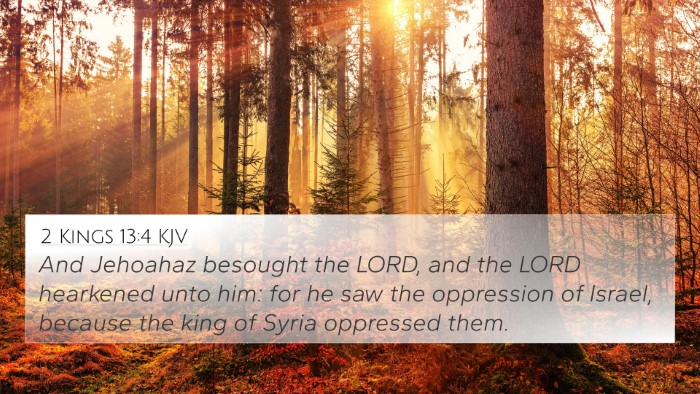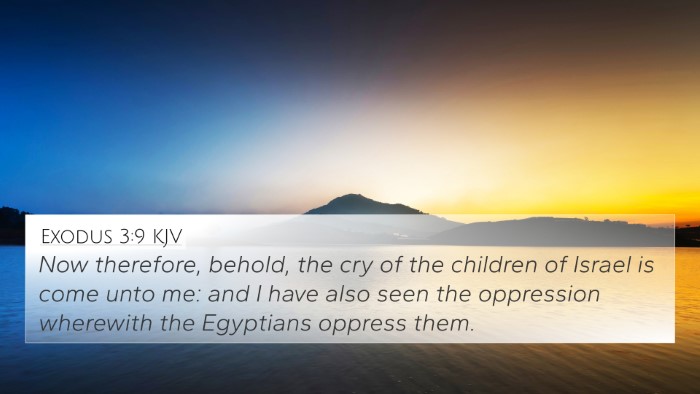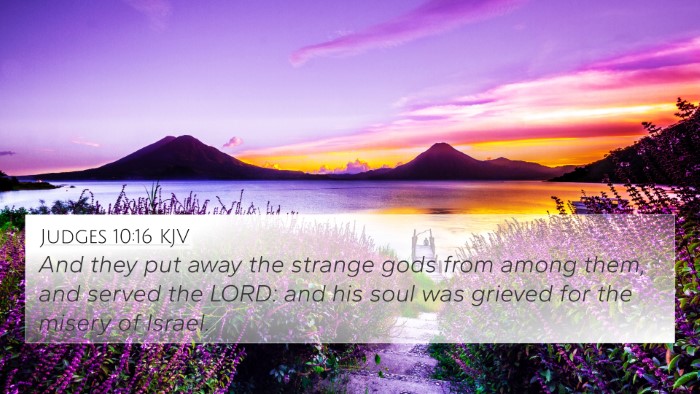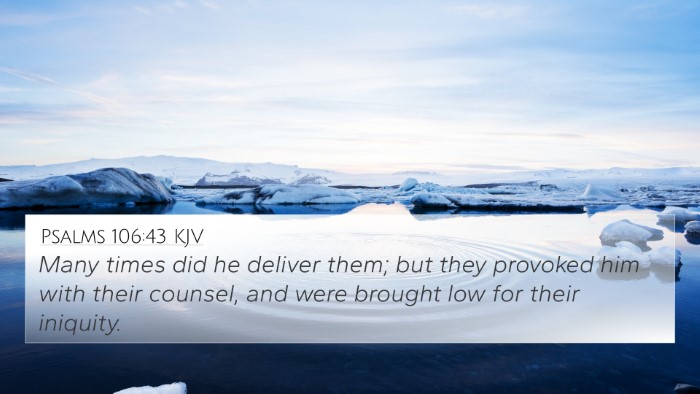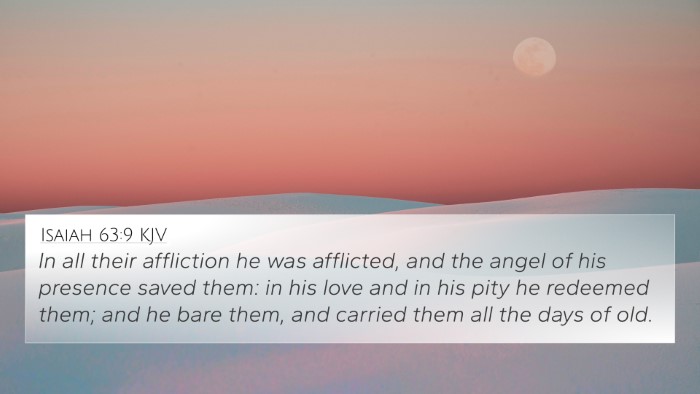Understanding 2 Kings 14:26
Verse: "For the LORD saw the affliction of Israel, that it was very bitter: for there was not any shut up, nor any left, nor any helper for Israel." (2 Kings 14:26)
Commentary Summary
The verse conveys a significant truth about God's perception of Israel's suffering. God sees the affliction of His people and responds to their desperate situation. This understanding is imperative in biblical theology, revealing God’s compassionate nature.
Key Themes and Insights
- God's Compassion: The verse highlights God's awareness and concern for the afflicted state of Israel.
- Human Helplessness: The mention of "not any shut up, nor any left, nor any helper" emphasizes the dire situation of the Israelites, asserting their need for divine intervention.
- The Sovereignty of God: This passage underscores God's control over Israel's history and His ultimate authority to deliver them.
Bible Cross-References
- Deuteronomy 32:36: "For the LORD will judge His people and have compassion on His servants."
- Psalms 12:5: "Because of the oppression of the poor, because of the groaning of the needy, now I will arise," says the LORD.
- Isaiah 63:9: "In all their affliction, He was afflicted, and the angel of His presence saved them."
- Lamentations 3:34-36: "To crush underfoot all the prisoners of the earth, to deny a man justice in the presence of the Most High."
- Matthew 9:36: "When He saw the crowds, He had compassion on them because they were harassed and helpless, like sheep without a shepherd."
- Romans 5:6: "For while we were still weak, at the right time Christ died for the ungodly."
- James 5:11: "Behold, we consider those blessed who remained steadfast. You have heard of the steadfastness of Job..."
Comparative Analysis
This verse from 2 Kings fits into a broader biblical narrative concerning God’s care for His people in times of grief and oppression. The parallels between this passage and others in Scripture reveal consistent themes of divine compassion and intervention.
Connection with the Old Testament
Throughout the Old Testament, we see multiple instances where God responds to the plight of the Israelites. The book of Exodus recounts how God observed the suffering of His people in Egypt and raised a deliverer, Moses, symbolizing His ongoing commitment to rescue.
New Testament Implications
In the New Testament, as seen in Matthew 9:36, Jesus exhibits the same compassion evident in 2 Kings 14:26. This connection showcases the continuity of God's character across both testaments, reinforcing that He remains attentive to human suffering.
Thematic Connections
- Affliction and Relief: A recurring theme in scripture is God’s promise to offer solace and healing to those in distress.
- Divine Justice: God’s role as just judge and compassionate advocate consistently appears, stressing the importance of righteousness and mercy.
- Human Frailty: The helpless condition of humanity without divine aid is depicted, prompting reliance on God's grace.
Reflection and Application
This scripture prompts believers to reflect on the nature of God as a compassionate observer of our suffering. It encourages a deeper appreciation of God's intervention in our lives during difficult times.
Practical Applications:
- Prayer for Help: Just as Israel cried out, we too are encouraged to seek God's help in our troubles.
- Empathy for Others: Understanding God's compassion should inspire believers to show empathy and aid to others in distress.
- Faith in God's Deliverance: This verse reassures us of God's ongoing involvement and promise of deliverance in our lives.
Tools for Further Study
To deepen your understanding of 2 Kings 14:26 and its context, consider using:
- Bible Concordance: To find related scriptures easily.
- Bible Cross-Reference Guide: Identify thematic connections with other verses.
- Cross-Reference Bible Study: Develop wider insights through linked scriptures.
Conclusion
2 Kings 14:26 serves as a poignant reminder of God's attentiveness to the afflicted and His readiness to act on behalf of those who suffer. Understanding this verse within the broader context of scripture enriches our comprehension of God’s unchanging nature and His commitment to His people throughout history.
